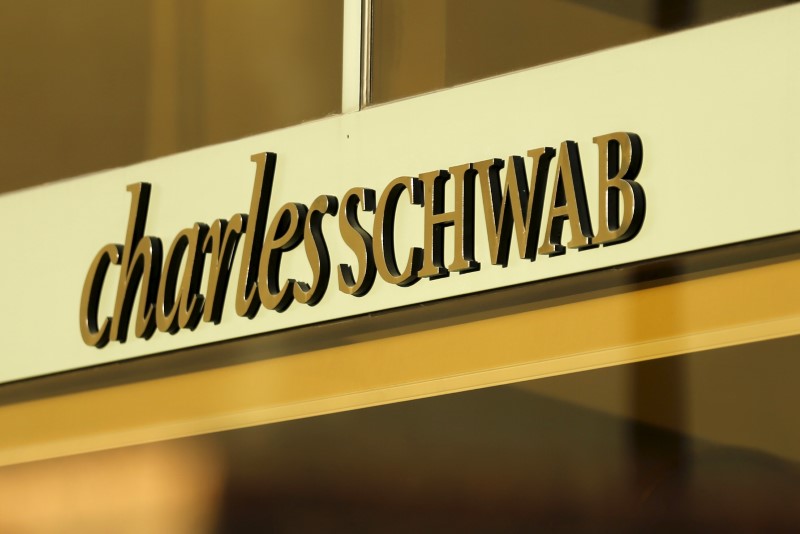© Reuters.
Investing.com — Charles Schwab (NYSE:) has reported a 9% annual drop in second-quarter revenue, as the U.S. brokerage giant was forced to rely on more expensive funding sources to bolster its cash flow due to economic uncertainty stemming from an unprecedented string of Federal Reserve interest rate hikes.
The Texas-based group had previously guided for a decline in revenue of between 10% to 11%, citing a slip in net interest margin and weaker trading activity.
Shares in the stock surged by over 7% in premarket U.S. trading on Tuesday.
Investors have been keeping a close eye on net interest margin, the difference between what a bank or financial institution makes from lending and pays for deposits, as the quarterly earnings season gets underway. The Fed has embarked on a long-standing policy tightening campaign aimed at cooling red-hot inflation, and further increases could weigh on Schwab’s returns, analysts have warned.
Schwab chief financial officer Peter Crawford said net interest margin dipped by 32 basis points sequentially to 1.87% as the company dealt with “the incorporation of higher cost liabilities.”
Crawford added that while have been “negatively influenced by a number of temporary factors,” Schwab remains “extremely well-positioned heading into the years to come.”
Bank deposits in the three-month period slipped 31% compared to the corresponding timeframe last year to $304.4 billion, but still topped Bloomberg consensus estimates of $298.37B.
Schwab saw a boom in cash deposits during the pandemic, but this rush subsided as customers decided to take advantage of elevated rates and move their funds into higher-yielding accounts like money market funds. The investment group, which has a banking license, also found itself exposed to the turmoil that rocked the banking sector earlier this year, with concerns particularly surrounding paper losses on its bond holdings.
Read the full article here




